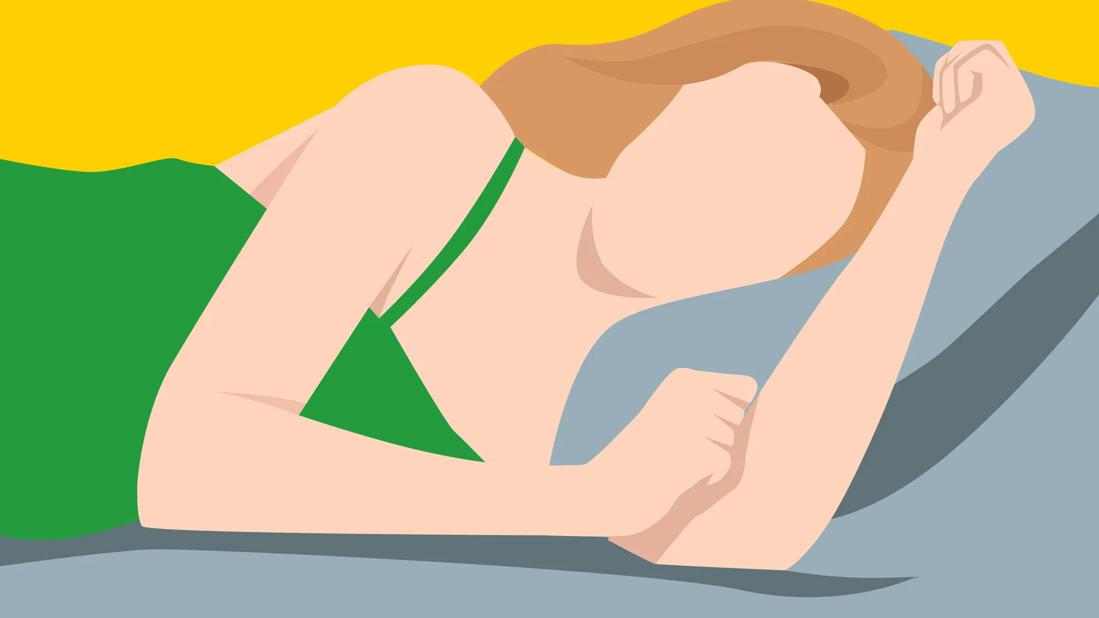A 15- to 20-minute power nap is best to boost alertness — beware napping longer than an hour

Sometimes, nothing helps you feel rested and energized like a good nap. But how long should naps be? And if you nap for too long, do you risk sacrificing sleep at night? We ask sleep medicine specialist Nancy Foldvary-Schaefer, DO, to share insight into the best nap length.
Advertisement
Cleveland Clinic is a non-profit academic medical center. Advertising on our site helps support our mission. We do not endorse non-Cleveland Clinic products or services. Policy
For adults, naps are best kept to the 15- to 20-minute range. While this type of well-timed nap has some known benefits, anything longer could have consequences come nighttime.
Let’s take a look at the basics:
Oh, and one more thing: Just as important as the length of your naps is the timing of them.
“It’s best to nap earlier in the afternoon, like before 2 p.m. or 3 p.m.,” Dr. Foldvary-Schaefer shares. Any later in the day may make it harder for you to fall asleep at night.
No matter how tired you are, your naps shouldn’t stretch for more than an hour. The longer you nap, the higher your chances of going into deep sleep. This is known as non-REM (NREM) stage 3, delta sleep or slow wave sleep.
Advertisement
Falling into the deep stages of sleep during the day can:
It’s not that long naps are bad for you, exactly. But they bring more risks for your overall sleep health than short naps do.
“Long naps undermine nighttime sleep, which is when we get our most restorative sleep,” Dr. Foldvary-Schaefer cautions. “This can set you up for chronic insomnia.”
In other words, taking long naps can create a vicious cycle of napping, then not sleeping well at night, then needing to nap again during the day — and so on.
Plus, Dr. Foldvary-Schaefer warns that the constant need to nap can indicate a sleep disorder, like narcolepsy. If you feel like you absolutely must nap just to get through the day, that’s worth bringing up with a healthcare provider.
“You shouldn’t struggle to stay awake during the day and have difficulty functioning because you’re so tired,” she says. “Many people don’t recognize that it could be a serious condition, so they don’t talk to their doctors about it. And that delays their ability to be diagnosed.”
Naps can’t make up for sleep deprivation. While a nap may help you refocus for a bit, it’s not a long-term solution. While you may feel better that day, it can create a cycle that compounds your “sleep debt” — the difference between the sleep you need and the sleep you get at night.
“As soon as you wake up in the morning, you start creating a sleep debt that you will, at some point, need to sleep off,” Dr. Foldvary-Schaefer notes. “But if you let yourself sleep it off too early in the day, you’ll have trouble sleeping at night.”
That’s when naps start to create a long-term issue.
Once you’ve derailed your sleep for a night or two, it becomes even harder to break out of the cycle. And when you start to experience chronic sleep problems, you’re at higher risk for other health issues, like:
The bottom line? If you must nap, do it earlier in the day. And always use an alarm to make sure it’s the right length of time … so you can sleep well at night, too!
Advertisement
Advertisement
Learn more about our editorial process.
Advertisement

Sleep disorders, mental health conditions and other health concerns can all affect the quality of your sleep

Most people fall asleep within 10 to 20 minutes, but if your experience is different, adjusting your sleep schedule may help

Stick to a consistent schedule, be mindful of screen time and work on reducing your stress levels before bed

Napping can boost focus, memory and mood — if you time it right
These devices can help shed light on what’s happening with your body during rest

Keep a dream journal, set your intentions before bed and make sure you’re getting a full night of high-quality sleep

Controlling your dreams may help you tap into your creativity and even reduce anxiety

Limited research suggests a weighted blanket may help with anxiety, insomnia and other conditions

Wearing a scarf, adjusting your outdoor activities and following your asthma treatment plan can help limit breathing problems

Your diet in the weeks, days and hours ahead of your race can power you to the finish line

When someone guilt trips you, they’re using emotionally manipulative behavior to try to get you to act a certain way